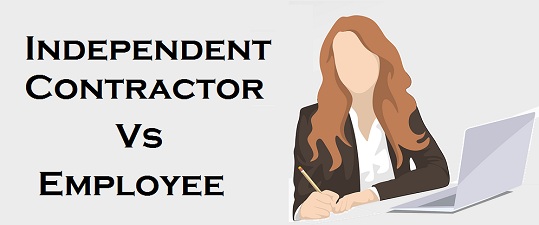- Free Consultation: (631) 352-0050 Tap Here to Call Us
Independent Contractor or Employee

Whether a worker is an independent contractor or an employee is a question with important implications. Employers who misclassify their workers may be liable for workers’ compensation penalties, wage and overtime claims, and unemployment insurance penalties. Simply paying an employee on a 1099 does not mean that the worker is an independent contractor.
The ride sharing company Uber classified their drivers as independent contractors. Like many other businesses that call workers independent contractors, by doing so, the company did not have to pay costly employee benefits. On June 9, 2017, an Administrative Law Judge determined that three Uber drivers were employees, not independent contractors. Today’s employment law blog discusses the Uber case.
The Blurry Line Between Independent Contractor and Employee
Courts and the Department of Labor have recently battled with classifying ride-hailing drivers as independent contractors verse employees. In April 2017, the highest federal court in New York held that black car drivers were in fact contractors and not employees. Additionally, prior to the administrative law judge’s decision in this case, the New York State Department of Labor (“NYSDOL”) had determined on at least six prior occasions that Uber drivers are independent contractors.
The Latest Uber Decision
In the Uber case, the New York State Department of Labor was determining whether Uber was required to pay unemployment insurance benefits for three drivers. The administrative law judge found that Uber drivers are required to have their own vehicle and smart phone. They also pay for their own fuel and vehicle maintenance costs. Moreover, Uber does not require its drivers to follow a certain work schedule. So, why did the judge rule that Uber drivers are not independent contractors?
In her decision, the judge noted that “Uber took steps to modify the claimants’ behavior.” By this, the judge meant that for example, the drivers received a code of conduct detailing what constituted acceptable behavior. Additionally, Uber drivers were expected to accept ninety percent of their ride requests and if they did not, the drivers would be deactivated.
As a result, the judge held that because Uber exercised “sufficient supervision, direction, and control over key aspects of the services rendered by claimants such that an employer-employee relationship was created,” Uber drivers were in fact employees of the company and not independent contractors. Thus, the three Uber drivers in this case, and “others similarly situated,” were entitled to receive unemployment benefits dating all the way back to January 2014.
The Uber company, unhappy with the judge’s decision, has decided to appeal the decision and has stated that the drivers who testified were “hand-picked.”
In sum, until the decision is reviewed by a higher court, Uber drivers in New York will receive the benefits of being considered employees. For the time being, the administrative law judge’s decision will apply to any Uber driver in New York State if they work under similar levels of supervision, direction, and control as the Uber drivers in this case.
If you have questions about the distinction between independent contractor and employee, contact the Long Island employment lawyers at Famighetti & Weinick, PLLC. Our phone number is 631-352-0050 and our website is http://linycemployment.com.
Today’s employment law blog was written by Thalia Olaya, a Hofstra Law School intern working at Famighetti & Weinick, PLLC, this summer.








